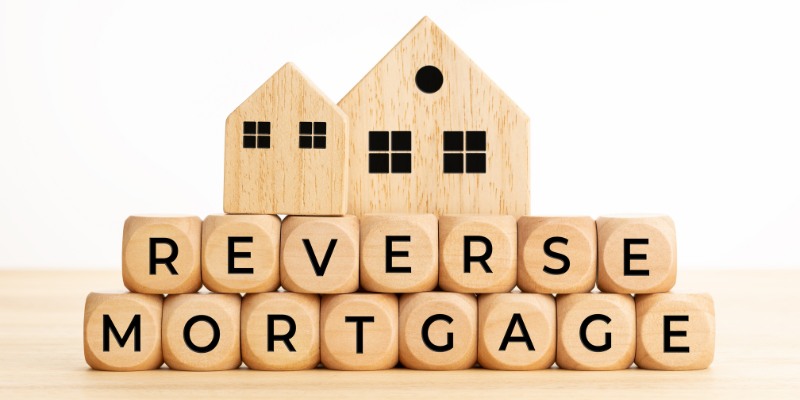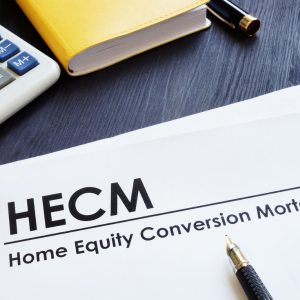
It can be challenging to sell a house in Massachusetts with a reverse mortgage, but if you know what you’re doing, it can be easy and rewarding. You need to know how reverse mortgages work to make sure the deal goes well. This book tells you everything you need to know about selling these kinds of homes in Massachusetts, as well as how these mortgages function. If you want to pay off your debt or get the most money for your house, you need to prepare carefully and be well-informed about this aspect of the housing market. This will help you make the greatest choice for your money.
Key Highlights
- Reverse mortgages enable older people obtain cash from the equity in their houses without having to make monthly payments. This is important for keeping track of their money.
- People who make decisions about reverse mortgage transactions in Massachusetts need to know a lot about them to make sure the rules are followed and the right decisions are made.
- Check out the real estate market trends and appraisals to make sure the sale price fits with your financial goals and the payments on your reverse mortgage.
- Taking care of a home, such as fixing things and making it look nice, makes it more appealing and is required by law in Massachusetts.
- Estate specialists share vital information on the legal and financial aspects of selling a reverse mortgage.
A Full Guide to Understanding Reverse Mortgages
People over the age of 62 who own a property can use a reverse mortgage to get cash from the equity in their home. These particular financial tools are for people who are retired, so they don’t have to worry about paying their mortgage every month. There are a few crucial things you need to know if you want to sell a reverse mortgaged house in Massachusetts. For example, you need to know how it is different from a standard mortgage. This in-depth article talks about the basics and variations between reverse mortgages, which will help potential sellers understand their options and duties.
What You Need to Know About Reverse Mortgages

People who own their homes and qualify for a reverse mortgage can obtain money from the value of their homes without having to sell them or make monthly mortgage payments. This alternative is supposed to help those who are having trouble with money and provide them more independence, especially seniors who wish to make more money after they retire. With a standard loan, the borrower pays back the loan amount to lower it. With a reverse mortgage, the loan amount grows as the homeowner gets money.
“Home equity conversion” is a common term that means turning equity into cash. One of the best things about a reverse mortgage is that the borrower doesn’t have to pay it back until they move out, sell the house, or die. This aspect makes the homeowner feel comfortable and lets them live peacefully without having to worry about paying their bills every month. In the end, it helps you save money. Also, reverse mortgages are non-recourse loans, which means that the homeowner or their heirs don’t have to pay more than the house is worth when they sell it. This keeps them safe from market changes. So, homeowners feel good about adding reverse mortgages in their retirement plans when they know these fundamental principles.
Key Differences Between Reverse and Standard Mortgages
When you first look at them, reverse and conventional mortgages may seem the same, but they are not. You pay off a typical mortgage by making monthly payments. Over time, this adds value to your home. A reverse mortgage, on the other hand, lets say homeowners 62 and older get to their equity without having to make monthly payments. When the borrower gets their money, the loan debt goes up instead. A reverse mortgage is a way for older homeowners to earn additional money by using the value of their properties.
Compared to a traditional home loan, qualifying for a reverse mortgage is often easier since homeowners don’t need a stable income or a high credit score. However, they’re still responsible for paying property taxes and maintenance fees to preserve the home’s value. Many reverse mortgage options are also supported by government-backed programs, giving borrowers added peace of mind. Understanding these distinctions helps homeowners make informed financial decisions when choosing the best mortgage option for their needs.
At the same time, if you’re considering selling your home instead of refinancing, we buy houses in Cambridge, offering a fast and hassle-free alternative for homeowners looking to access their home’s equity without taking on additional debt.
Laws in Massachusetts that have an effect on reverse mortgage sales
If you want to sell a house in Massachusetts that has a reverse mortgage, you need to grasp how the state’s convoluted legal and regulatory processes work. It’s crucial to grasp the law when selling a house with a reverse mortgage in Massachusetts because the restrictions have a huge effect on how homeowners can do it. This exploration talks about critical legal considerations to keep in mind when selling these kinds of homes, as well as information concerning Massachusetts legislation. Homeowners should know these things before selling a reverse mortgaged property so they can make sensible choices that are in line with their financial goals and the legislation in their state.
Things to keep in mind when selling a house with a reverse mortgage
When you sell a house with a reverse mortgage, you need to be aware of a variety of legal difficulties, especially in Massachusetts where the rules are different. First, you need to know what the terms of the reverse mortgage were when you first agreed to it. This includes going over the fine print of the reverse mortgage deal to uncover any terms that could change how the sale goes. It’s crucial to think about the borrower’s duties during any deal, like keeping the house in excellent repair and paying property taxes.
Before going through with the deal, the homeowners or their heirs should also ask the reverse mortgage lender for a pay-off statement. This lets you figure out how much you owe in total, including the principal, interest, and any extra fees. This makes it obvious what the money obligations are. The law in Massachusetts also specifies that everyone who is involved must be able to converse to each other plainly. The lender should be advised about the plan to sell so that the terms of the contract are not broken. Homeowners might want to consult to a lawyer who knows the laws surrounding reverse mortgages in Massachusetts to help them get through these hard steps.
In Massachusetts, estate laws safeguard homeowners’ rights and responsibilities during property transactions. This means that it is vitally necessary to be honest and pay any housing obligations. Every step, from the initial notice to the last piece of documentation, should prove that the area’s rules are being followed. This can help the process of going from a reverse mortgage agreement to a completed sale go smoothly.
Knowing the laws in Massachusetts

The requirements in Massachusetts are very intricate, which makes it hard to sell homes with reverse mortgages. Massachusetts has a unique legal framework that strictly supervises reverse mortgage transactions, which is not the case in other states. The housing rules in this state are aimed to protect homeowners and make sure that everyone involved in the sale has a fair and open procedure.
One of these rules is the Massachusetts General Laws. They explain what rights borrowers have, especially when it comes to payment arrangements and escrow accounts. These rules stipulate that those who borrow money must stay in touch with their lenders so they can pay them back. Knowing the rules that apply to your city or town might also be helpful.
Some of these guidelines can be specific requirements for house inspections, standards for how energy-efficient a home should be, and other factors that are crucial when selling a home. Massachusetts also invests a lot of effort into teaching borrowers, telling homes to fully understand the financial obligations that come with a reverse mortgage. Sellers who are trying to sell homes with reverse mortgages might get a lot of support from housing counselors who know a lot about Massachusetts rules.
If you hire these professionals, they can assist you deal with creditors and make sure all the documentation is filled out correctly. This will help you prevent any legal difficulties that come up out of the blue. If you know these guidelines, it will be easier to deal with the legal side of Massachusetts housing, which will help you make a wise, legal, and successful deal.
Thinking about the financial problems that come with selling your house
Selling a house in Massachusetts with a reverse mortgage can significantly affect your financial situation. If you’re planning to sell your house fast in Massachusetts, it’s important to understand the current real estate market and how the appraisal process works. Market conditions play a key role in determining your final sale price, while appraisals ensure that your property is accurately valued. Knowing these factors helps homeowners estimate potential proceeds from the sale and plan accordingly. By evaluating these elements carefully, sellers can make informed decisions that align with their financial goals and meet reverse mortgage requirements.
Looking at the Massachusetts real estate market right now
When you sell a house with a reverse mortgage, the real estate market in Massachusetts is highly crucial for how much money you can make. The market’s strength can change how much a house sells for, which in turn affects how much money the homeowner makes from the sale. In Massachusetts right now, the need for housing changes from one area to the next. People who own homes and are contemplating about selling should know about local real estate trends, such as whether prices are going up or down.
The seasons also have an effect on the market. For instance, more buyers tend to be active in the spring and fall, which could make prices go up. People that sell reverse mortgages also need to worry about wider economic things, such interest rates. Changes in interest rates can change how much money purchasers have, which can change how many people want to buy a house. To stay up to date on real estate news in Massachusetts, sellers should read local housing statistics and financial research.
They can then decide when and how much to sell their home for so that they can obtain the most money when the market is at its best. If you know how the real estate market works in Massachusetts, you can make a good plan for selling your home. Sellers can compare their home to similar ones and see how much it is worth based on its unique features and location. If you work with housing experts in Massachusetts, they might be able to help you sell your property quickly and easily. By carefully looking at the real estate market, homeowners may be able to collect more money when they sell a reverse mortgage house.
What Appraisals Do When You Sell Your Home
When you sell a house in Massachusetts with a reverse mortgage, getting an appraisal is an important aspect of the financial planning process. A correct appraisal tells you how much a house is worth on the market. This is vital for calculating out how much money sellers might gain from a sale after paying down their reverse mortgage. A complete appraisal makes sure that the price of the home is in line with current property values. This protects the homeowner’s financial interests, especially in a market that is continuously changing. Only people who are certified and know a lot about real estate in Massachusetts can make appraisals.
They have to think about factors like how well the house is kept up, how much the community is worth, and what the market is doing. A good appraisal looks at both the house and the area around it to evaluate how much it could increase in the future. This shows where it stands in the market as a whole. This approach helps sellers figure out how much money they have, how much money they will have once they pay down their mortgage, and how to follow Massachusetts-specific requirements for reverse mortgages. Also, employing accurate assessments might assist keep things from going wrong or causing problems during transactions.
Accurate valuations make negotiations go more easily and provide buyers piece of mind about the property’s value, which keeps things from becoming delayed. Sellers should make sure that the appraisal takes into account any renovations they made to the house, which could help them get a higher price. Homeowners might plan better for a successful sale if they chat to their financial advisors about the appraisal results. Homeowners can securely control their finances and make sure the transaction proceeds easily and profitably if they know how the appraisal helps set the proper price for a home.
How to Sell a Property with a Reverse Mortgage Successfully
There are a number of steps you need to do to make sure that the sale of a reverse mortgaged home goes well. First, you need to get your house ready to sell so that buyers will be interested and you may obey the requirements in Massachusetts. A good estate agent can help you sell your home by offering you helpful information about the local market and your finances. Homeowners can sell their reverse-mortgaged house successfully if they plan ahead and obtain help from professionals. This will help them receive the most money for their home and stay within the law.
Preparing Your House for Sale

If you have a reverse mortgage in Massachusetts, you need to be very careful about every little thing when you get your house ready to sell. First, you should look at the property’s current state, since first impressions are quite crucial when trying to get buyers interested. Homes should be in great shape to make them more appealing. To make them seem nicer, fix any obvious flaws, such chipped paint or leaking faucets. Making the kitchen and bathroom nicer, for example, might make the house worth a lot more and get you better offers. Staging your home also makes it feel more welcoming, which helps those who might want to buy it visualize themselves living there. Removing personal belongings and choosing neutral design can make a home look better. It’s crucial to recognize that the way something looks is really important. That’s why hiring professional cleaning services could give you a perfect finish that even the most picky buyers will like.
The next step in preparing your reverse-mortgaged property for sale is to focus on landscaping. A neat, well-maintained yard and exterior can greatly enhance curb appeal, encouraging potential buyers to take a closer look. These small improvements can simplify the staging process and have a major impact on the final sale price—helping homeowners make the most of their investment.
In Massachusetts, sellers must also follow local regulations regarding property appearance and condition, such as meeting specific energy efficiency standards or completing required home inspections. Staying compliant ensures your home meets both buyer expectations and legal requirements, helping to avoid delays during the sale.
By taking these steps, property owners can sell their homes faster, meet the terms of their reverse mortgage, and achieve their financial goals. And if you’re looking for a quick, hassle-free sale, Ephesus LLC buys houses for cash in any situation—call us today to learn how we can help.
FAQs:
What is a reverse mortgage, and how is it different from a normal mortgage?
Homeowners over the age of 62 can use reverse mortgages to turn their home equity into cash without having to make monthly payments. With a regular mortgage, the amount you owe on the loan goes down with each payment. But with a reverse mortgage, the amount you owe on the loan grows over time. This financial tool is for people who are retired and provides them more control over their money.
What are the most important legal things to know before selling a house in Massachusetts that has a reverse mortgage?
Homeowners in Massachusetts need to grasp the rules that are different for selling reverse mortgages. This entails looking over the terms of the mortgage, telling the lender you wish to sell, and being aware of your responsibilities, such paying taxes and keeping up with repairs on the home. For a trade to go through, it is highly important to follow state rules.
How do reverse mortgages change the way you sell your property and the money you get from it?
Reverse mortgages can have a huge impact on how the transaction goes. The homeowner or their heirs must pay off the mortgage when they sell. How much money you make from the sale also depends on the state of the market and the evaluations. You can design a sale that will make you money if you know a lot about it.
What is the first thing you should do to get a house with a reverse mortgage ready to sell?
You need to fix things up and make renovations to essential areas like the kitchen and bathroom before you can sell a house with a reverse mortgage. You also need to present the house so that it looks better to purchasers. You also have to observe city laws, like those that have to do with energy efficiency.
Why is it important to consult to a professional before selling a house in Massachusetts that has a reverse mortgage?
It’s crucial to hire an expert to help with reverse mortgage transactions because they are so difficult. They help you work with lenders to make sure everything goes properly and give you information about loan criteria and market trends. Because they know so much, they can promptly settle all legal and financial issues.
Helpful Massachusetts Blog Articles
- How To Sell House Without A Realtor in Massachusetts
- Selling A Home That Needs Repairs in Massachusetts
- Can You Sell House with Tenants in Massachusetts
- How To Sell A House in Probate in Massachusetts
- Selling Home With Reverse Mortgage in Massachusetts
- Capital Gains Tax After Selling A House in Massachusetts
- Selling A House To A Family Member in Massachusetts
- Can You Sell Your House With A Quitclaim Deed in Massachusetts
- How Does Selling A House with A Mortgage Work in Massachusetts

